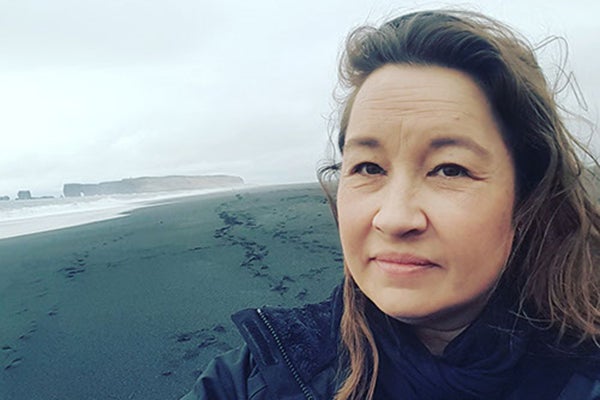Mentoring fellow aims to support ECU faculty
Jennifer Sisk, East Carolina University senior teaching instructor of English for the Thomas Harriot College of Arts and Sciences, is making a positive difference for faculty, now and in the future, as the 2022-23 Fellow for Mentoring and Inclusion at ECU.
Sisk is the third faculty member to hold the fellowship, which is a collaborative effort between the offices of the provost, faculty excellence and equity and diversity that was created to foster professional development and mentorship.

Jennifer Sisk, senior teaching instructor of English and mentoring and inclusion faculty fellow at East Carolina University, has a goal of creating an inclusive culture of mentoring and support for faculty. (Contributed photo)
She became the fellow in the summer of 2022 and will serve until this summer, following Eboni Baugh and Yolanda Holt. Sisk’s goal is to build upon their work by engaging with faculty to answer the questions: What do faculty need at different phases of their careers? What can the university do to better support all faculty?
Sisk wants to strengthen the ECU and Greenville community by creating an inclusive culture of mentoring and support for all faculty and contributing to the continued recruitment and retention of diverse faculty.
“As the university is changing, and the type of positions we have to offer are expanding, it is important to make sure that all faculty are represented,” she said.
Last summer, Sisk examined the faculty/career cycle — from recruitment, hiring and orientation to retirement — and what faculty need to feel supported at these levels. From there, she developed categories of needs that include a sense of community; mentoring, both formal and informal; professional development; and leadership opportunities.
Supporting faculty
Now, Sisk is examining what ECU is doing to support faculty during these different phases. She will interview deans, associate deans and various faculty members about their experiences with mentoring and faculty support.
The Office of Faculty Excellence’s Mentoring Workshop Series, which offers online seminars for faculty on different topics of importance, is one example of a professional development opportunity emerging from the fellowship, aligns with Sisk’s goal of supporting a campus culture of mentorship.
According to Sisk, faculty mentors who invest in their mentees help ECU feel more like home to those individuals, giving them a sense of community. That feeling may foster the likelihood of faculty staying in Greenville long term and investing not only in the university, but in the community.
“The changing world of academics can be extremely isolating and hard to navigate,” Sisk said. “So, the more opportunities and activities we can offer for engagement and support, making sure faculty have formal and informal mentors to support their scholarship and research, or whom they can vent to, is very important in keeping faculty at ECU.”
Another grant-funded initiative, which focuses mainly on STEM but complements Sisk’s work, is the ECU Research Mentorship Network led by Ariane Peralta, associate professor of biology. The network offers small faculty discussion groups that meet monthly to informally talk about experiences and best practices for mentoring research students. They provide a chance to take student mentorship to the next level or help someone who is looking for different perspectives to improve their mentorship skills.
For more information about ECU faculty mentorship, visit OFE’s page on mentoring, or contact Sisk at 252-328-1539 or by email at siskj@ecu.edu.